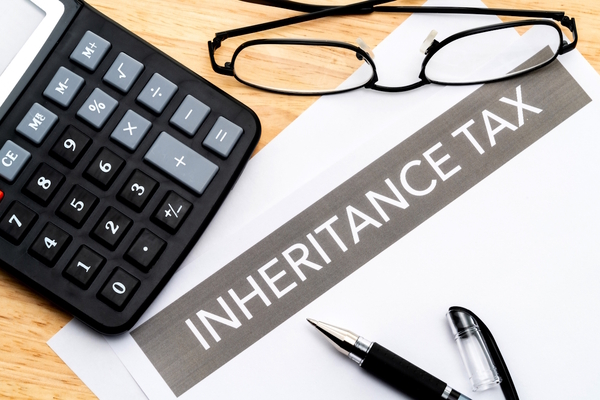Cost or climate?

Lucy Klinkenberg-Matthews at Paragon explores the impact of the economic crisis on sustainability
Rarely a day goes by without the topic of climate change and environmental policy hitting the headlines, sitting uncomfortably next to the warnings about the rising cost of living.
Those headlines tend to be negative, often warning of the catastrophic impact on our lives should governments across the globe fail to take urgent action. Over the past decade, political leaders have responded to those calls for action by introducing various initiatives to reach net zero emissions or curtail inflation. Those initiatives follow a commitment by 197 countries, including the UK, in the 2015 Paris climate agreement to cut emissions by 68% by 2030, compared with 1990 levels.
It was, therefore, surprising when the UK government recently announced that drivers would still be able to buy new diesel and petrol vehicles until 2035 – a delay of five years on the previous plan, which set out to ban them by 2030.
It was also revealed that the ban on new fossil fuel boilers for certain households will be delayed while cash grants for boiler upgrade schemes will increase by 50% to £7,500 for those who want to transition now. Prime Minister Rishi Sunak said that the government could not impose "unacceptable costs" linked to reducing emissions on British families. This followed an announcement from the government in July that hundreds of new oil and gas licences will be granted in the UK as part of a “drive to make Britain more energy independent.”
UK consumers have also faced increased costs resulting from inflation. Following two years in which the Bank of England has sought to reduce inflation by increasing interest rates, food prices dropped in September for the first month in almost two years, according to figures from the British Retail Consortium.
As businesses try to retain market share among price-sensitive consumers, there is a danger that the current economic climate may derail long-term sustainability plans. Organisational leaders have to ask themselves whether they can afford to deprioritise their environmental ambitions to keep customers coming through the doors.
In our latest research project, we examined whether, at a time of significant market volatility, consumer priorities are now shifting to affordability and value for money, at the cost of more sustainable choices.
The poll of 4,000 consumers in the UK, Germany, France, the Netherlands and Belgium, found that when compared to before the start of the COVID-19 pandemic, the importance consumers place on price has increased. This is not surprising given that 93% of respondents to the European Parliament Eurobarometer survey suggested that the cost of living is now their most pressing worry.
The importance consumers place on price has increased across all our surveyed markets, with an average rise of approximately 5% compared to the pre-pandemic level. Consumers have become more conscious of their spending and are seeking more cost-effective options across their purchases.
Quality vs sustainability
The study also reveals a notable shift in the importance of quality as a purchasing priority. While quality has traditionally been a key consideration for consumers, its significance has decreased since the pandemic. Across all markets, the value assigned to quality has seen a decline of around 1-3%, suggesting that consumers are willing to compromise on quality to prioritise affordability.
These findings present a stark reality for consumers. Reviewed together, it is easy to see the assumptions companies might make about their customers’ purchasing priorities, but sustainability as an area of key importance is much more nuanced. As a purchasing priority, sustainability has experienced less pronounced changes at a national level.
Our research indicates that the value assigned to sustainability fluctuates by no more than 1% in comparison to pre-pandemic levels. This stability highlights that, while sustainability may not always be the primary purchasing priority, it remains a key consideration for consumers. They still care about the environmental impact of their choices, even though price and affordability have gained more prominence.
Generational divide
Almost a third (32%) of consumers indicated that they were more likely to buy a sustainable product instead of a similar but less sustainable option. However, despite their lower purchasing power, younger generations are driving demand for sustainable products, likely motivated by greater awareness, and even fear, of the environmental crisis we face. Two-fifths of consumers aged 18-24 expressed a higher inclination towards sustainable purchases, compared to just 24% for over 65s.
Companies need to recognise the increasing importance of sustainability for younger consumers. Catering to their sustainability concerns will be crucial for long-term success and brand loyalty.
Corporate responsibility
We also examined consumer attitudes relating to the role of companies in meeting net zero goals. Almost three-quarters (73%) of consumers believe that companies could do a lot more when it comes to sustainability, with 66% asserting that companies should put in more effort than consumers themselves.
However, over a third of consumers (36%) feel that businesses are not meeting their needs when it comes to producing sustainable products. In addition, only 26% of consumers across markets believe that companies are doing enough to demonstrate that sustainability is a business priority.
Earning consumer trust
While it is clear that consumers are open to paying more for sustainable products, there is a mismatch between the sustainability initiatives they consider important to them when it comes to buying goods, compared with what they would pay more for. The gap highlights what consumers increasingly expect and what they would place a premium on, demonstrating the need for an evolutionary approach to sustainability.
The initiatives that are more likely to convince consumers to pay more for sustainable products include whether it is ‘Fairtrade’ (60%), if it uses non-toxic or less toxic substances in the production process (59%), and if it uses less energy and water in the production process (55%).
Interestingly, we see that ‘if it uses recycled materials’ and ‘if it uses less packaging’ are at the bottom of the list, although these two initiatives were considered the most important when it comes to buying goods.
So, what does this tell us? Upstream sustainability initiatives – those that require actions across the supply chain – are worth more to consumers than things within a company’s immediate control. While a sustainability dividend does exist, significant action internally and across the supply chain will be required to reap it.
Successful sustainability
Our findings paint a clear picture of how sensitive consumer purchasing is to the current economic reality. However, sustainability priorities have not shifted in any significant way since the pandemic. Consumers across all markets, especially the younger demographic, still care about sustainability despite the increasing importance placed on price.
While customers feel strongly about seeking out sustainable options, companies are not forthcoming when it comes to providing the insights they need to make informed choices.
Meeting this consumer need is critical because it’s not just about keeping customers happy, it’s about keeping your business afloat. Businesses that have successful sustainability strategies achieve this because they recognise that sustainability isn’t something they have to do, it’s something they get to do.
It’s an opportunity to attract customers and employees by showing them you care enough to take action proactively. If businesses put their long-term focus not on profits alone, but on developing a sustainability strategy that is both ambitious and workable, then the profits will come as a consequence.
Lucy Klinkenberg-Matthews is Head of ESG at Paragon
Main image courtesy of iStockPhoto.com

Business Reporter Team
Most Viewed
Winston House, 3rd Floor, Units 306-309, 2-4 Dollis Park, London, N3 1HF
23-29 Hendon Lane, London, N3 1RT
020 8349 4363
© 2024, Lyonsdown Limited. Business Reporter® is a registered trademark of Lyonsdown Ltd. VAT registration number: 830519543





